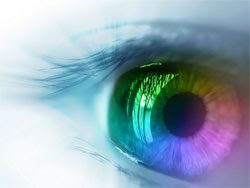Although I do not normally write about health issues, I have a keen interest in my readers being able to see what I write.
Ocular nutrition and eye health is an important part of helping maintain our vision and eye health as we age. One can safely say that every part of the human eye needs ocular nutrition support and nutrition to improve eye health.
Healthy vision and the human eye is related to the health of the individual parts of the eye — the cornea, iris, macula, lens, optic nerve, pupil, retina and the vitreous humor. And ocular nutrition is one of the ways good vision can be supported.
As we age, many things can go wrong with our vision. Ultraviolet light from the sun can damage the lens and the cornea. Wind, dust, chlorine fumes, automobile fumes, freezing temperatures and physical injury are examples of threats to good vision.
Vibration from driving and hitting potholes has a cumulative negative impact on eye health as well as long hours spent in front of a computer screen. And certainly we need foods that help to promote healthy eyes.
Here is ocular nutrition information for nourishing the eyes:
-
Ocular nutrition with collard greens, kale and spinach.
- Studies show that eating foods rich in
carotenoids
-
Ocular nutrition with green vegetables and corn.
- Another study on ocular nutrition has shown a reduced likehood of developing cataracts for persons with diets higher in
lutein
zeaxanthin.
-
Ocular nutrition with blueberries, apricots and bilberries.
- Besides the studies reported by the National Eye Institute above, other studies exist on ocular nutrition and foods that improve eye sight.
beta carotene
lycopene
anthocyanosides.
-
Ocular nutrition with cold water fish and Omega 3 fish oil.
- Cold-water fish such as salmon, tuna, cod, haddock as well as sardines are rich in the healthy
Omega 3
Here’s additional important ocular nutrition and vision information:
Besides the nutrients and ocular nutrition foods described above, the following nutrients are associated with vision and eye health.
- Alpha Lipoic Acid – ALA improves the performance of other antioxidants in the body
- L-Taurine – helps protect the eyes from UV light and helps strengthen the retinal cells
- Lycopene – a strong antioxidant found in tomatoes
- N-Acetyl Cysteine – helps protect the eyes from damage by UV light and strengthens the immune system
- Quercetin – a strong antioxidant that helps maintain lens transparency; exists in small amounts in red wine
- Vitamin C – helps the body resist damage by oxidation (damage from long-term exposure to oxygen and light)
- Zinc – helps support macula and retina health; levels of zinc and eye health are definitely related
How can you obtain these ocular nutrition nutrients every day?
3 – Take a vision and eye health specific nutritional supplement. There are ocular health vitamins and ocular health nonprescription supplements that help maintain or even improve eyesight. This can be a practical and cost-effective solution.
4 – Take a daily multiple vitamin/mineral supplement that includes the vitamins for ocular health providing the eye-healthy nutrients in meaningful quantities. This option can be the best way, assuming one can locate such a product. Most daily supplements either do not include all of the eye-healthy nutrients, or the quantities are so low as to be of little benefit.
We should never take eye health and good vision for granted. The fact that you were searching for the term “ocular nutrition” means you are already aware that nutrition and supplementation can help maintain or even improve your eye health.
Failing vision does not have to be a part of getting older – give your eyes the critical ocular nutrition and nutrients in meaningful quanties every day. This likely means including ocular health vitamins in your daily supplementation. Your future eye health may depend on it!

